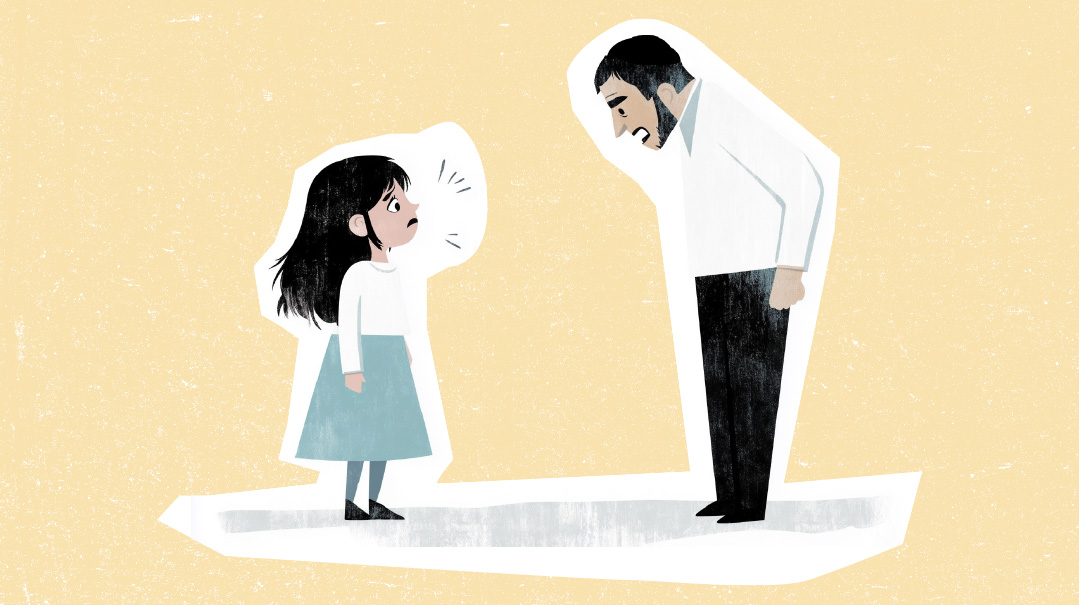“My OCD Relationship Issue Is Taking Over My Life”

Limerence, like other addictive behaviors, serves a psychological purpose

Q:
I’m a woman struggling with a relationship OCD issue with a coworker, and it’s taking over my life. I think about her a lot, and I have a really hard time not giving in to my compulsions, which include messaging her, talking to her, talking about her, and so on. I also try to connect with her on a deep level because doing so creates an emotional intensity that I enjoy. I thought this kind of obsession was a teenage issue, but I’m quite a bit past my teenage years and have a beautiful family, baruch Hashem.
This coworker seems to genuinely like me in a healthy, normal way. I’m afraid if I continue acting this way around her, I might become too much for her. Being rejected by her is one of my greatest fears.
I’m wondering if you would recommend any of the following options or if you have any better ideas and advice:
- Fighting my compulsions as much as I can.
- Normalizing the situation in my mind — looking at it as a close friendship and following my inner voice and seeing where it takes me.
- Stop the relationship (which I don’t think I’m capable of, but wondering if that should be the goal, although I’ll probably find someone else who I’ll obsess over…)
Thank you for your wonderful and insightful column.
A:
Your question — and your answers — shows a lot of psychological insight. To begin with, you already know that your feelings about your coworker are part of some kind of obsessional disorder. In fact, the particular emotions and behaviors you describe are characteristic of a syndrome called “limerence.”
Limerence has not yet made its way into the DSM (the system used by health professionals to diagnose mental health disorders), but is recognized by many professionals as a legitimate syndrome entailing aspects of OCD and substance abuse disorders.
The term “limerence” was coined by psychologist Dr. Dorothy Tennov in the 1970s. Like you, many sufferers have healthy marriages and family lives. The relationship obsession is often focused on a friend or acquaintance. As described in an article by Brandy Wyant, appearing in the National Library of Medicine vol 8, 2021, “Individuals experiencing limerence struggle with near-constant rumination about the object of their attention (referred to as the Love Object, the LO). They may also engage in rituals that interfere with their other responsibilities, such as staring at photos of the LO or repeatedly reading messages from them.
Frequently, the sufferer mentally replays past interactions with the LO, searching for indications of how the LO might feel towards them. When the LO shows affection or approval, the limerent individual’s mood soars to ecstatic, and in the face of actual or perceived disapproval, the mood plummets to despair.”
This description of the disorder, as you can see, is very much in line with your own symptoms. The article goes on to describe a treatment protocol for limerence that is the same as the one typically employed in the treatment of OCD: ERP — exposure and ritual prevention. This would be your Option A as you described above: fighting the compulsions.
Essentially, it involves feeling the strong urges to write messages, talk with her, and talk about her, but waiting for the urges to pass instead of giving in to them. Basically, you’re refusing to feed the obsessive neural network in your brain, waiting for it to shrivel and die due to a lack of nourishment.
Your Options B and C can’t be endorsed as neither addresses the obsessive neural network. This means, as you noted, that the problem still exists and will simply find a different target. Although the behavioral brain-based therapy described above is a necessary part of the cure for your condition, true healing would also involve psychotherapy.
Limerence, like other addictive behaviors, serves a psychological purpose. Addressing underlying traumas, stresses, conflicts, and emotional pains can help ensure that no other maladaptive behavior will step up to replace the one you currently have.
Look for a licensed mental health practitioner who can work with your personal and relationship issues and who will teach you self-help skills for the ongoing processing and management of difficult feelings. When we learn to fully welcome, accept, and love ourselves and our loved ones, we don’t need to obsessively chase externalized illusions of idealized relationships.
Have a question for Mrs. Radcliffe? Send your queries about parenting or personal growth to familyfirst@mishpacha.com
(Originally featured in Family First, Issue 794)
Oops! We could not locate your form.





